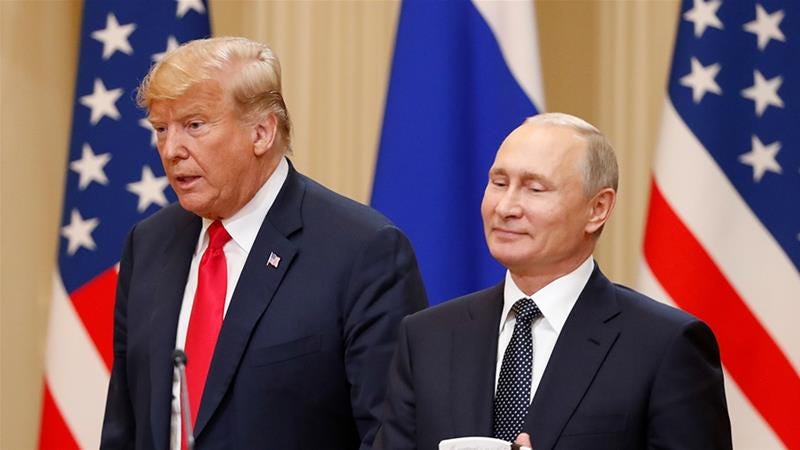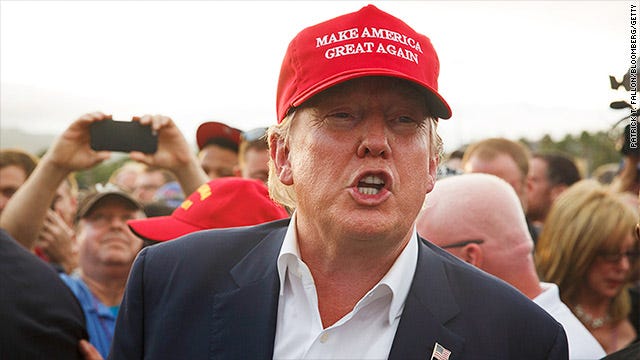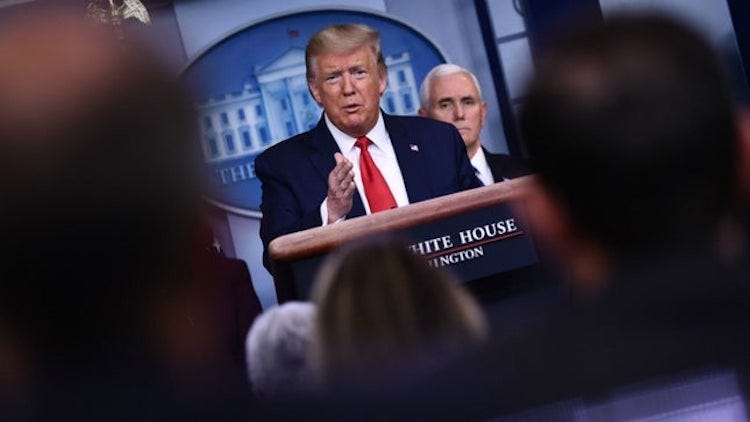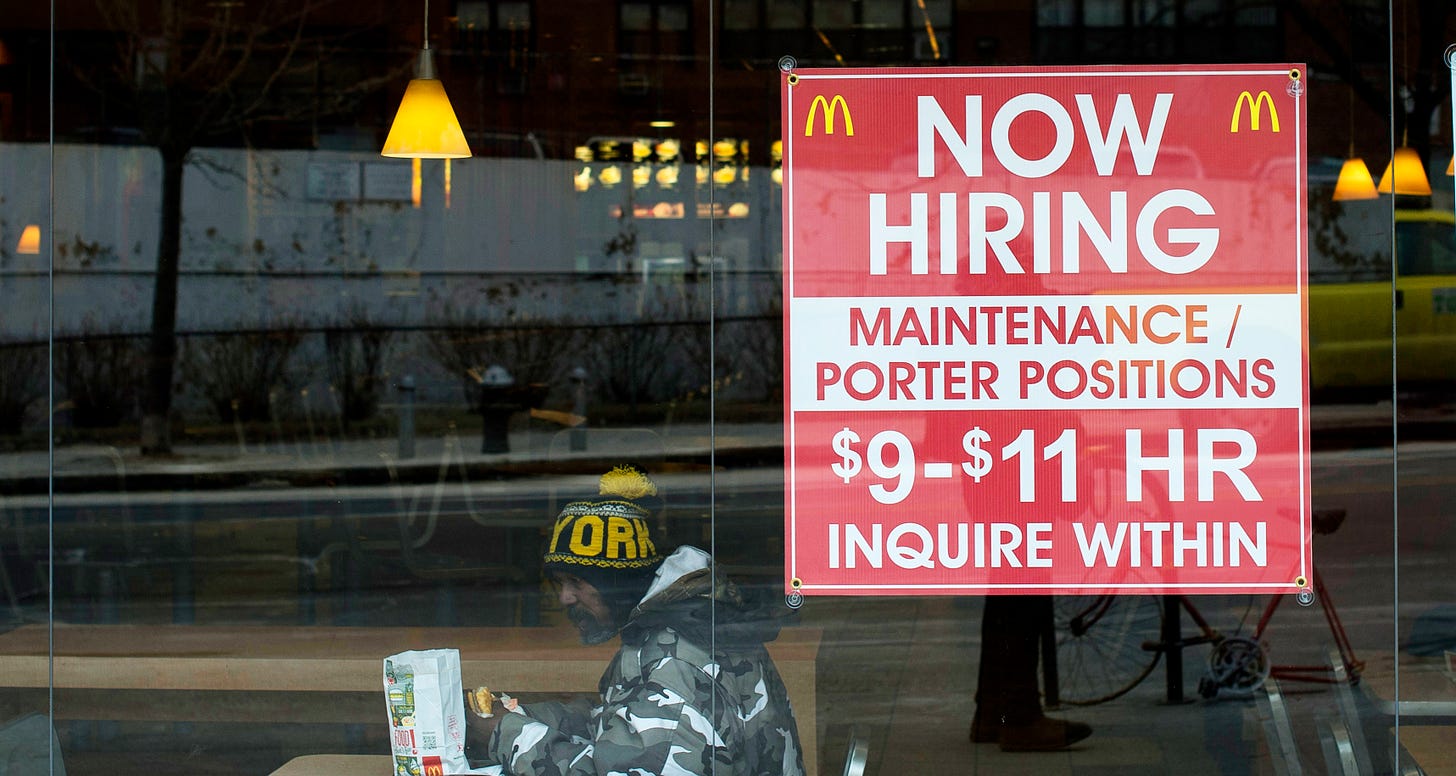Trump's Narcissism Turns Deadly, And The Post COVID World Order
Your essential Sunday reading.
Note from Ben:
Happy Sunday everyone! Given the deluge of Coronavirus information and extremely complex political situation arising out of the crisis, Mike Luciano (the former news editor at The Daily Banter) and I started a weekly podcast to help people understand what has been happening. This week’s episode we discuss how Trump's narcissism and the GOP's longstanding aversion to science and expertise have crippled America's response to the coronavirus pandemic. You can listen on Anchor here, or open in Spotify here.
I also came across an extraordinarily thoughtful article published by a friend on Facebook on what a post COVID-19 world might look like. Andrew De Roy is the founder of Bearstone Global, a Europe based risk consulting and corporate intelligence company, so has unique insight into how this crisis is likely effect current geopolitical trends. He kindly allowed us to republish his piece, and I think it’s worth reading in full, particularly as it relates to America’s severe mishandling of the crisis.
REMINDER: During the pandemic, you can get 50% off a Banter Membership and get access to all our premium articles and locked archive of work. We are committed to providing fact checked, reliable and thought provoking journalism to our readers, so please take advantage today:

The Post-COVID 19 World, And The Acceleration of Geopolitical Trends
by Andrew De Roy
How will the future world look geopolitically post this pandemic? The analogy of us “driving in heavy fog” is apt for the current moment, with so many things changing so fast, it is hard to make solid predictions. No doubt many of the below predictions will look very misguided, even in several months. However historical accounts of past pandemics show that they accelerate trends which had started prior to the outbreak.
The trends which were happening as the crisis hit included:
* Huge strain on the EU structure as populism took hold
* Geopolitical rivalry and tension between the US and China as the latter continued its rise
* Internal political polarisation in most parts of the West between the rich/poor, metropolitan/rural, liberal/conservative
* Increasingly distributed companies working across many countries and increasingly treating its users/customers as its citizenry
This is an initial attempt by me to predict how a new normal geopolitically may unfold.
The EU
Will this crisis be the springboard required for the much need reforms? Will the continent finally be able to create solidarity among fellow Europeans, or will this prove to be a sham, and the final nail in the coffin of the European Dream (or delusion) which so many have predicted?
The current moment is undoubtedly existential for the EU. The response to the crisis has been very much centred around nation states, and there has been precious little solidarity between countries as the crisis has unfolded. It is poignant that Italy is getting more medical supplies and advice from China than from Germany at the moment. What will this mean? Will it be final disintegration of the EU into a more traditional nation state system of alliances, or will this be the springboard to create a new meaningful structure and to create a European federal state of nations. In my view it will. most likely will be a bit of both, with an internal core of countries federalising fast into deeper union, and a periphery.
Geopolitical realities will mean most Europeans will see the necessity and importance of scale in a new global order. It is likely that an escalation of geopolitical rivalry between the US and China, and the acceleration of the end of Pax Americana and NATO will mean that Europeans will see having an army as essential to protect the continent, and economies of scale mean that the pooling of resources (and sovereignty) will be critical for this. Small countries will need to give up a veto, as a more proportional representation method of governing will become a non negotiable to prevent gridlock and credible decisions. For some like the Baltic states, the decision will be easy, for others, perhaps seeing what other options will be on the table before making any decisions. The relative weakness of Russia will make the decision easy, and China is not there yet as a credible alternative.
The crisis is likely to also show the relative success of more authoritarian Asian regimes, and likely mean that an increase in transparency and democracy on the European level will not necessarily be seen.
The relative success of Germany in dealing with the epidemic will cement its position as the leader in Europe. It is interesting to see if Germany will as a result allow itself to be more forceful on the global stage, or will it increase its heft under the auspices of Europe.
Italy and Spain, and probably others will certainly be requiring significant bail outs post-COVID. The 2008 crisis did a lot of "kicking the can down the road". Enforced austerity on Italy is not an option, as frankly they were extremely unlucky to be hit first by the virus in Europe. Will the Germans and other net donors this time do “whatever it takes” to fix? Again, this will be a critical question in seeing whether the EU survives, or whether we see European fragmentation (and increasing irrelevance in geopolitical terms). A European renaissance to create a triage in the political geopolitical battle between the US and China, would be very welcome for the planet as a whole.
The UK
Brexit…..the post-COVID institution building may well be the painful and sobering experience for the UK, where the reality of its lost status in the world stares it starkly in the face. For the first time Britain will be on the sidelines as the major discussions on how the post-COVID Global Institutions will look like. The UK will be a “rule taker”, and there will be very little it will be able to do about it. The “Big 4” at the table with be the USA, the EU, China and India. If we were to be a "Big 5”, the UK would not even be part of the discussion, with the likes of Russia, Indonesia, Brazil, or even an African representative being a far more credible representatives on such a platform. Geography still matters, and the UK will need to find its new equilibrium within Europe, both politically and economically. Expect alignment with EU rule making to come into force over the course of the year.
From a purely geopolitical perspective, the UK may hope collapse and rebuilding of internal European institutions from ground zero as a “best case” scenario, albeit the one of the UK being on the sidelines is the most credible scenario. From the rubble, it would have a seat at the table of the rebuilding of a new European structure.
China
I personally do not believe that there will be massive recriminations against China as the birthplace of the “Wuhan virus". The fact is that pandemics are a statistical inevitability, and the birthplace could just as easily have been Africa, India or a US prison. China were slow in dealing with it, but even with many weeks of notice, the US and European responses were far slower and chaotic in relative terms. The diplomacy is now in overdrive, and it is clear China is now on the offensive looking to create political capital in terms of advice and supplying of essential (and lucrative) medical supplies.
What is clear is that China at present is at a really fascinating juncture in terms of its global position. Its rise has been evident for a long time, and the pandemic will accelerate one of several potential scenarios:
* either be the accelerator which causes a major global conflict or a new Cold War
* see China step up and be a new major leader on the global stage
* create a huge groundswell of internal resentment against the system (especially if the global export-orientated business model becomes unsustainable).
* Use a historic opportunity to finally annex Taiwan
All of these scenarios seem to be plausible.
However I believe this is a massive opportunity for China at present. It seem likely however is that the Chinese brand will increase in prestige, if it gets its factories purring once again and pivoting to manufacturing huge supplies of medical equipment such as ventilators which so much of the world so desperately needs. The diplomatic opportunity of Chinese spreading influence could be hugely accelerated. The One Belt One Road initiative was a 50 year plan, but the fact that many of the Developing world countries will undoubtedly be the hardest hit by COVID 19, will the Chinese be the ones providing the global leadership, which is so clearly lacking as the US and the EU continue to look inwards, dealing with their very significant domestic problems.
If we envision a new “Cold War” scenario developing between US and China, the current moment is a big opportunity to make a “land grab”, especially if the EU collapses (leaving many Eastern European states vulnerable), or the trend of US isolation seen under Trump (and Obama before him) continues. Countries like Pakistan and Iran… where China already is a serious actor will be very interesting to observe, and to see how far China further imbeds itself.
Russia
Arguably the most important relationship for the future direction of the Eurasian landmass will be between China (the new major Asian power) and Russia. How this transition will play out post-COVID is interesting, and will the acceleration of the transfer of power to China be an inevitable consequence. It is interesting to observe how COVID plays out in the former satellites of the Soviet empire such as Kazakhstan. This is a country of major strategic importance, and if as expected the developing poorer world suffers the most from the virus, China may well cement its influence in the region, and further strain the control that Moscow has in its former colonies. This is a region where Turkey also has ambitions of being a power due to geographic and ethnic ties, as well as Iran. Russia of course is in a weak and defensive geopolitical position, and will have to accept some “new normal” as the junior partner in the relations with Beijing. The interactions between these powers and understanding how they reorganise will be extremely important in determining the future direction of the Eurasian continent, as the relative decline of the USA takes hold, and as the crisis exacerbates the trend of increased isolationism of the world’s greatest power.
USA
The dysfunctional federal government was able to “wing it” for the first 3.5 years of Trump’s presidency, but now the shambolic response to the crisis and the fact it will be so much worse than anywhere else will have big ramifications for a country that has never been properly attacked. As described by Michael Lewis and many others, the stripping and not replacing of the "Deep State" will finally catch up with Trump, who will increasingly look tired and out of his depth. There is a sense of freedom (entitlement) which is preventing the US taking the measures that it needs. The fact that the health care system is completely incapable of absorbing the unfolding tragedy will be interesting to observe in terms of how hard it will hit the self-confidence of the US - what we cannot forget is the most powerful empire the world has ever seen.
However it is important to remember that the US is the most powerful empire the globe has ever seen. It is a military, economic and technological powerhouse. Will it realties that it is incapable to going into isolationism, and realise that it must engage with the world, or will it continue the trend started under Obama of disengagement from International affairs? It may see its position forced by China, who as predicted above are likely to come out of the crisis stronger and continue increasing its influence along the Eurasian landmass (and of course Africa, where it is already a major player).
If Trump wins a second term, the lack of leadership in America will likely result in clear escalation with China. It is also interesting to see if the extreme polarisation in US society will continue, and if this is another trend that continues accelerating. It is likely that the continued end of Pax Americana will result in ever more conflict and uncertainty in the world.
A new global order
Some of the main trends to look at:
- 2nd wave of infections, and what system deals with it best. Right now the Asian model seems the best by quite a distance. It is likely that moire authoritarianism (another trend we have seen develop over the last few years) increasingly is seen as acceptable by the citizens of the globe.
- Major swing left in politics. Universal Basic Income has gone in very short order from what is seen as a radical concept to mainstream to fully accepted response to the pandemic.
- Increased equality within devalued world countries. A fall in asset prices (stocks and real estate) of between 40-80% will disproportionately hurt the rich. It will potentially allow the young to acquire properties or Amazon stock when they were only a few short months ago out of reach.
- But increased inequality between the developed and developing world. The developing world will be ravaged if the worst predictions of the disease are accurate. This will result in increased “walls” and countries keep out migrants. This short term result will of course only increase the chances of future pandemics, and will be unsustainable in the long run.
- Medical security and the shortening of supply chains. Like in any crisis there will be winners and losers. Medical security of citizens will no longer be acceptable to outsource to China, and will provided many economic opportunities in the short-run.
- The end of Westphalia? The crisis in the long-run may well be a final death nail for the nation state. The system is totally unsuited for dealing with the major issues of the modern world, whether it be global pandemics, nuclear proliferation, climate change, mass migration flows or global inequality. While the initial knee-jerk reaction may be for nations to retrench and become more authoritarian, a reordering around Global Institutions with new designs will be inevitable. The most likely candidate to really start the redesign will be the European Union. Its design was hugely successful for 70 years in the aftermath of World War 2, but now needs reordering to be able to be more n nimble and strategic, especially as geopolitical challenges grow. If this fails and the EU collapses, watch Europe be the epicentre of a new Cold War between China and the US as many small and weak nation states will fall into the orbit of one or the other.
(image via Reuters)
Read the latest for Banter Members:
The Most Shameful Tweet Of Trump's Entire, Sordid Career
As the nation faces the most serious pandemic in over 100 years, Donald Trump is tweeting about his television ratings, says Ben Cohen.

The Media Is Helping Re-Elect Donald Trump
Trump hasn’t once earned the benefit of the doubt, from any of us, and the usual suspects in the press need to stop giving it to him, says Bob Cesca.

Slave Nation
The single most deadly and longstanding precondition promoting and sustaining a potentially lethal virus is poverty, says Rich Herschlag.




Couldn't disagree more with the 'new world order' article. No mention whatsoever of the real keys to global change and opportunities: human population control, undoing of theocracies and religiosity (including Christian America) to confront the realities of the planet, sustainability for energy, food, water and habitat. The existing systems have no vision or plan for addressing these vital needs to the survival of our species or this planet.
What a poorly edited collection of “this could happen, or that could happen, or maybe a blend of both”.
Predictions include both “moire [sic] authoritarianism” and a “Major swing left in politics.” So things will include a shift to the right, or to the left? How insightful.
“A fall in asset prices (stocks and real estate) of between 40-80% will disproportionately hurt the rich.“
Well, duh. The decline in stock values is going to affect those who own stocks. trenchant an observation.
What the long-term results this pandemic will be, and what affect it will have on either accelerating, slowing, or redirecting existing trends is something worthy of thought. Personally I don’t know how all this will play out over the long term or what the future world will look like. Much like the author of this article.